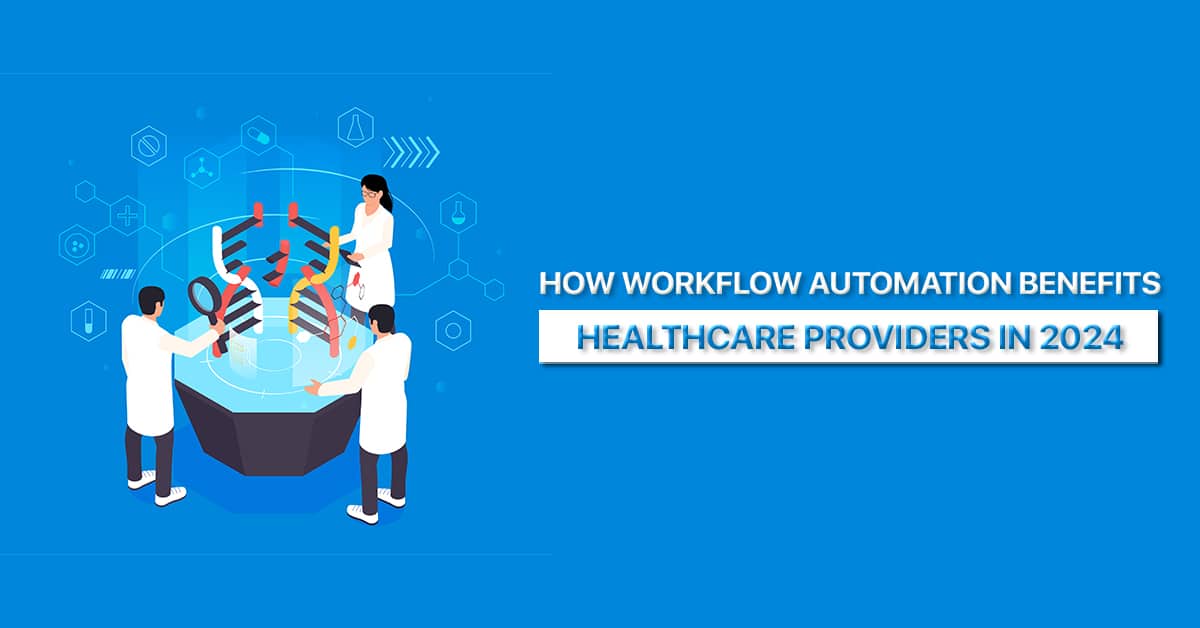The adoption of workflow automation in the healthcare sector is on the rise for valid reasons. By alleviating healthcare providers from the burden of documentation and repetitive tasks, it allows them to focus on critical responsibilities that demand expertise and strategic thinking.
Recent studies indicate that a significant portion of healthcare professionals spend between 26-41% of their time immersed in paperwork. Tasks such as gathering patient information, dispensing prescriptions, managing billing, onboarding patients, and processing claims, though essential, can be both time-consuming and exhausting. Introducing automation through technology in healthcare workflows can effectively free up valuable time for medical staff.
Workflow automation in healthcare refers to the utilization of technology to mechanize and streamline various processes within healthcare facilities. This encompasses activities like appointment scheduling, managing patient records, overseeing staff operations, generating schedules, and handling billing, and managing healthcare insurance. Beyond enhancing efficiency, minimizing errors, and delivering improved care to patients, the ultimate objective is to enhance patient safety.
Advantages of Healthcare Workflow Automation
Automation within healthcare workflows offers a host of valuable benefits, such as:
1. Enhanced Accuracy:
In healthcare, even a minor error can lead to significant consequences. Human errors in manual data entry are always a possibility for healthcare providers. These errors cost healthcare providers $40 billion annually and can even pose life-threatening risks. Automating uploads, however, guarantees precise data entry without room for error.
2. Enhancing Communication and Patient Care:
Ensuring effective communication between patients and physicians is paramount for achieving positive healthcare outcomes. Through automation, patients receive timely and consistent information, ultimately elevating the quality of care provided.
Addressing the issue of no-shows is a common challenge. Occasionally, individuals may forget about their appointments, leading to missed opportunities for care. This challenge can be mitigated by proactively sending reminders before scheduled appointments. By doing so, healthcare providers not only save time and resources but also ensure that patients receive the appropriate care.
3. Cost Efficiency:
Automation offers various avenues to reduce healthcare costs. It serves as a safeguard against potential harm arising from medical errors. Additionally, efficiency gains lead to a decrease in expenses related to overtime or extra labor.
4. Improved Data Management:
Effective healthcare delivery relies on the utilization of patient data. When stored physically and manually, retrieving this data can become a challenge. Automation empowers healthcare practitioners by facilitating the management and analysis of large volumes of data. Moreover, this information is consistently and readily accessible.
5. Improved Adherence:
Healthcare data holds sensitive patient information. Through the configuration of usage rights, automation ensures healthcare providers adhere to pertinent regulations and guidelines. This restricts data access to authorized personnel.
Every healthcare organization has the potential to enhance the efficiency and effectiveness of their operations by implementing workflow automation. Utilizing digital tools allows teams to alleviate the administrative workload, enabling them to concentrate on delivering optimal care to patients

